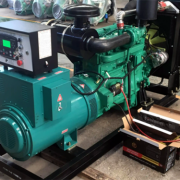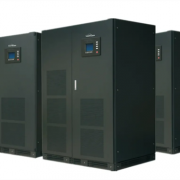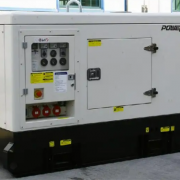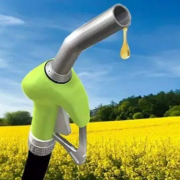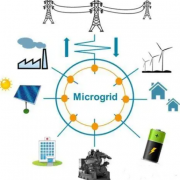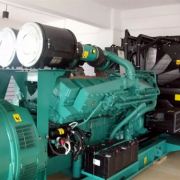Top 10 Gas Engine Spare Parts Suppliers of 2025
As the demand for reliable gas engine parts continues to grow, here’s a comprehensive look at the top 10 suppliers shaping the industry in 2025:
Caterpillar
A global leader in power solutions, Caterpillar maintains its position as the premier supplier of original equipment manufacturer (OEM) parts. Their extensive network ensures worldwide availability of genuine Cat parts, backed by comprehensive warranties and technical support. Their digital platform offers easy access to parts catalogs and ordering systems, making maintenance planning efficient for customers.
MWM
Now under Caterpillar Energy Solutions, MWM specializes in gas engines and power generation systems. Their logistics center in Lorsch, Germany, houses over 2 million spare parts, ensuring quick delivery worldwide. MWM’s commitment to quality control and continuous product development makes them a trusted choice for original parts for TCG series engines.
INNIO Jenbacher
Known for their high-efficiency gas engines, Jenbacher provides genuine parts that maintain optimal performance throughout the engine’s lifecycle. Their parts undergo rigorous testing and quality control, ensuring reliability and longevity. They offer comprehensive maintenance kits and specialized solutions for different engine series.
Onergys
As an independent supplier, Onergys has established itself as a reliable source for both original and alternative parts. Their online platform offers an extensive catalog of components for various gas engine brands. They specialize in quick delivery and competitive pricing, making them popular among maintenance teams and service providers.
Weyeah Power
Based in Wuhan, China, Weyeah has emerged as a significant player in the alternative parts market. They offer both OEM and alternative parts for major brands, focusing on quality control and competitive pricing. Their large inventory and efficient logistics network ensure prompt delivery to customers worldwide.
RSMotor
Operating from Spain, RSMotor provides comprehensive solutions for gas engine maintenance. Their expertise in Deutz/MWM, Jenbacher, and Guascor engines, combined with their extensive parts inventory, makes them a reliable partner for European customers. They also offer specialized repair services and technical support.
PowerUp
An Austrian company specializing in Jenbacher and MWM engines, PowerUp offers innovative solutions for gas engine optimization. Their focus on technological advancement and customer service has earned them a strong reputation in the European market. They provide both parts and comprehensive service solutions.
Zuhon Technology
Though relatively new, having been established in 2022, Zuhon has quickly gained recognition for providing quality alternative parts. Based in Shenzhen, China, they combine competitive pricing with reliable quality control, serving customers globally with a focus on MWM, Jenbacher, and Caterpillar parts.
Iggnita
Operating from Turkey, Iggnita has built a strong presence in the Middle East and European markets. They offer a comprehensive range of services including parts supply, maintenance, and technical support. Their focus on customer satisfaction and quick response times has helped them build a loyal customer base.
Industrial Marine Power
As an online marketplace platform, Industrial Marine Power connects buyers with suppliers worldwide. While not a direct supplier, their platform facilitates global trade in gas engine parts and serves as a valuable resource for sourcing both new and used components.
The industry continues to evolve with these suppliers adapting to new challenges and opportunities. Key trends include:
- Increased focus on digital platforms and e-commerce solutions
- Growing demand for alternative parts alongside OEM components
- Enhanced emphasis on quick delivery and logistics efficiency
- Rising importance of technical support and service packages
- Greater attention to sustainability and environmental considerations
When choosing a supplier, customers should consider factors such as:
- Parts availability and delivery times
- Quality assurance and warranty terms
- Technical support capabilities
- Pricing and payment terms
- Geographic location and shipping options
This diverse mix of established manufacturers, independent suppliers, and innovative platforms ensures healthy competition and gives customers various options for their gas engine maintenance needs.

